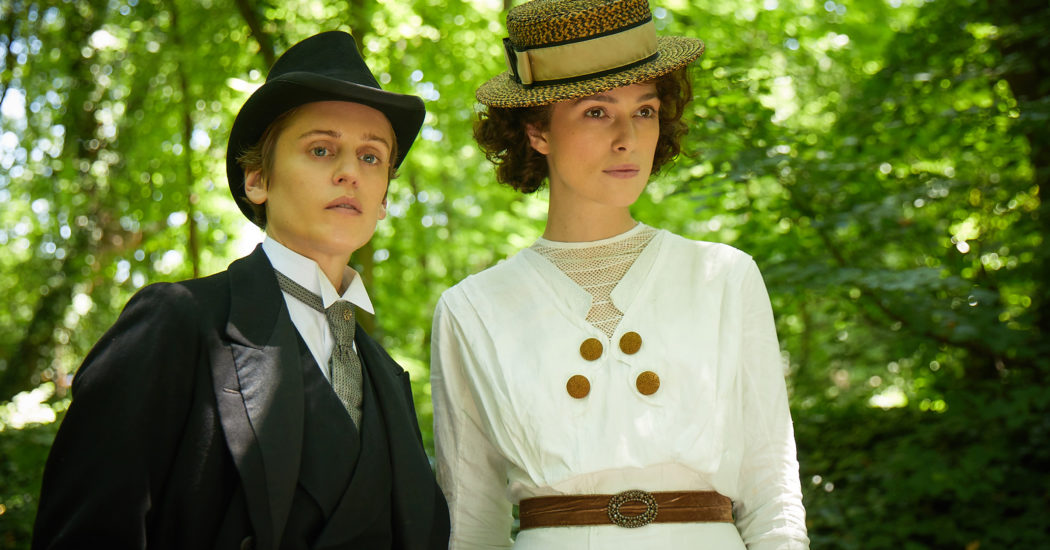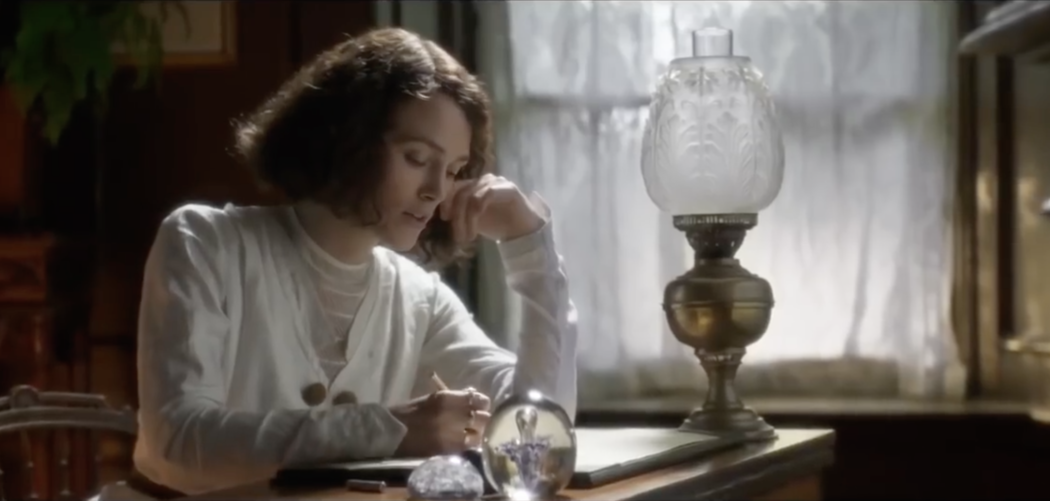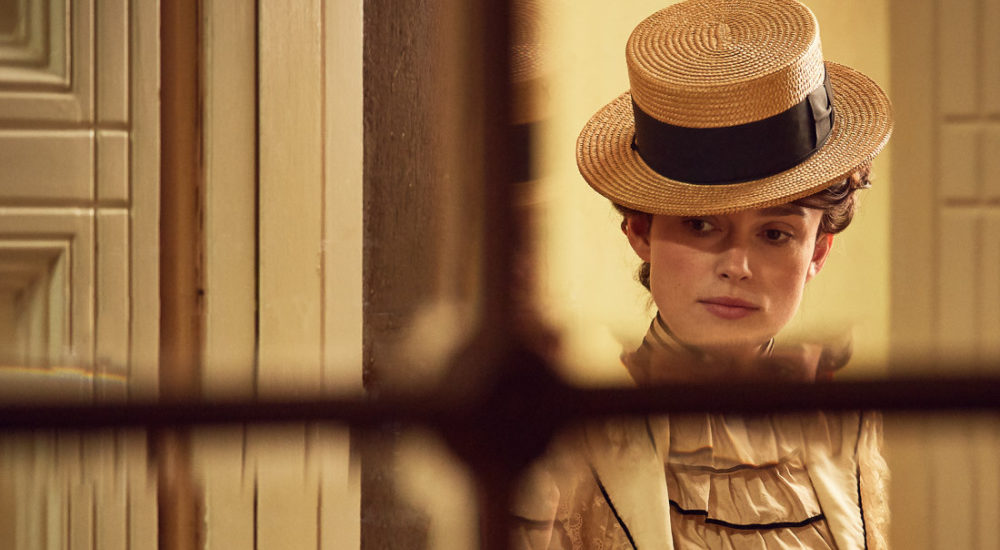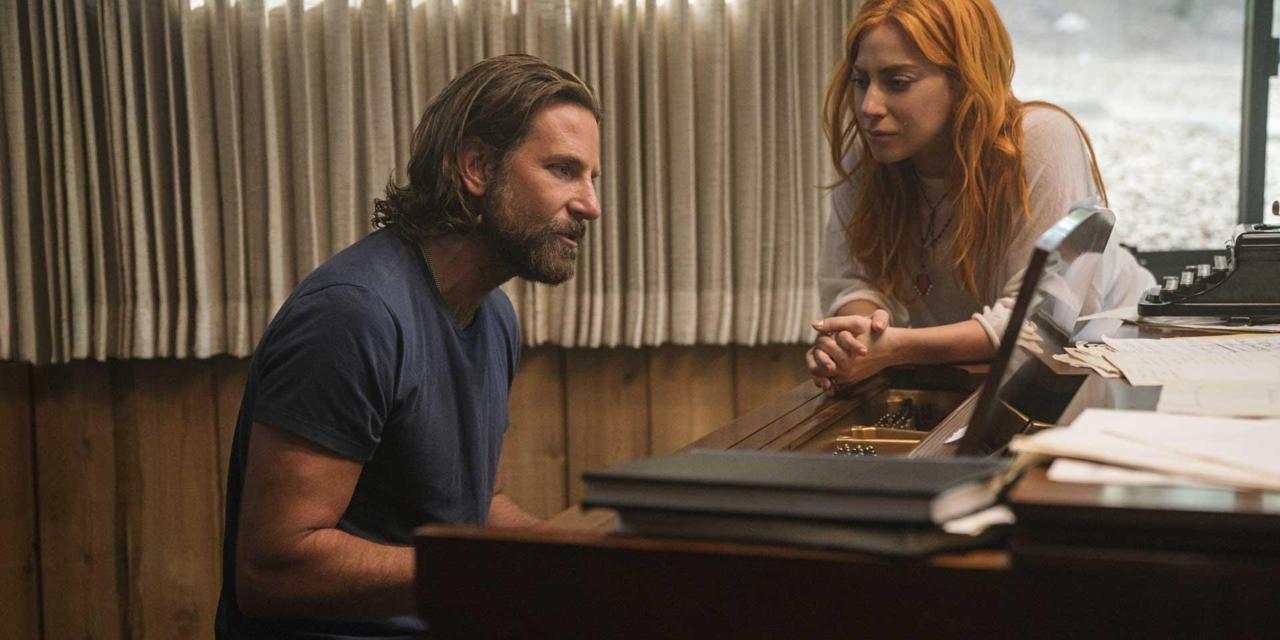
'Colette' Review
It's not the best matrimonial plagiarism movie of 2018, but 'Colette' does have merits that do not fail to entertain (and the costumes are fantastic).
Release Date: October 5, 2018
MPAA Rating: R
Colette is pushed by her husband to write novels under his name. Upon their success, she fights to make her talents known, challenging gender norms.
Director: Wash Westmoreland
Screenwriter(s): Richard Glatzer, Wash Westmoreland, Rebecca Lenkiewicz
Producer(s): Elizabeth Karlsen, Pamela Koffler, Michael Litvak, Christine Vachon, Gary Michael Walters, Stephen Woolley
Cast: Keira Knightley (Colette), Dominic West (Willy), Eleanor Tomlinson (Georgie Raoul-Duval), Fiona Shaw (Sido), Denise Gough (Missy), Shannon Tarbet (Meg), Aiysha Hart (Polaire), Robert Pugh (Jules)
Editor: Lucia Zucchetti
Cinematographer: Giles Nuttgens
Production Designer: Michael Carlin
Casting Director(s): Susie Figgis
Music Score: Thomas Ades
Production

Years before writers/directors/life partners Wash Westmoreland and Richard Glatzer made the wonderful Still Alice, the pair began work on a passion project about French novelist Sidonie-Gabrielle Colette. A couple of weeks after Julianne Moore won the Academy award for her performance in Still Alice, Glatzer passed away from ALS. One of his final wishes was to get their movie about Colette made, and now, Westmoreland honors his legacy with Colette.
Colette stars Keira Knightley (The Imitation Game, Laggies) in the title role as a young woman who marries a successful “writer” named Henry Gauthier-Villars, who goes by the pen name Willy (Dominic West from John Carter and Money Monster). The word “writer” is in quotes because no matter what Willy “writes,” be it theater reviews or poetry, he has someone else do it for him and slaps his name – his brand – on it. When it is suggested that Willy should write a novel, he agrees and asks Colette to ghostwrite it for him. Colette comes up with a personal story about an outgoing country girl named Claudine, and the book becomes a massive bestseller. As Colette pens more Claudine books and Willy ungraciously signs his name to them, tensions flare in their relationship.

Like most “based on a true story” movies (*cough* BlacKkKlansman *cough*), Colette takes a little bit of dramatic license with its subject, but not too much. It seems to be a fairly faithful account of Colette’s life, with some of the bluer aspects revved up a bit. The screenplay, which Westmoreland finished with co-writer Rebecca Lenkiewicz (Ida, Disobedience), focuses on Colette’s “Willy” years, the start of her writing career, and the most salacious period of her life. The story is full of scandal and intrigue, from Colette’s secret resentment of her husband’s plagiaristic embrace of her work to the couple’s consensual affairs and hard partying. You know, all of the fun and exciting stuff.
For many, Sidonie-Gabrielle Colette is a feminist icon, and for her part, Keira Knightley slips effortlessly into the role. The progression from country girl to city socialite is one that she portrays flawlessly, striking a perfect balance between sheepishly conforming to the standards of the day and standing up for herself, both to her husband and to the world in general. Knightley becomes Colette, and it’s more than just some cleverly written dialogue and a snazzy hairstyle.
Colette would have a better chance at finding an audience if it had been made a few years ago. The release is poorly timed because there is another movie from this year about a Wife who writes books for which her husband takes credit, and it’s a better one (although naming it would be a spoiler, since what’s an obvious plot point in Colette is a big reveal in the other movie). Colette doesn’t have the tension and suspense of [redacted], but it does have its own merits, and those merits never fail to entertain.
Costumes

Colette is a period piece that takes place around the turn of the nineteenth century, and costume designer Andrea Flesch (The Duke of Burgundy) looks to have had a lot of fun with the era. Most of the costumes were purchased as opposed to constructed, so they are actual vintage clothing instead of reproductions. This gives the costuming a realistic, natural look. Colette’s clothing changes with her personality growth from young girl to worldly woman, her outfits reflecting her expanding wisdom and experience. Her hair, styled by Ivana Primorac (Darkest Hour), goes through the change, too, from flowing locks to short bob over the course of the film. The look of the character fully echoes Knightley’s evolving performance. No matter how outgoing the outfits or how scandalous the hairstyles, the costumes in Colette are always on point, with Flesch and Primorac paying excruciating attention to detail and leaving nothing to chance.


